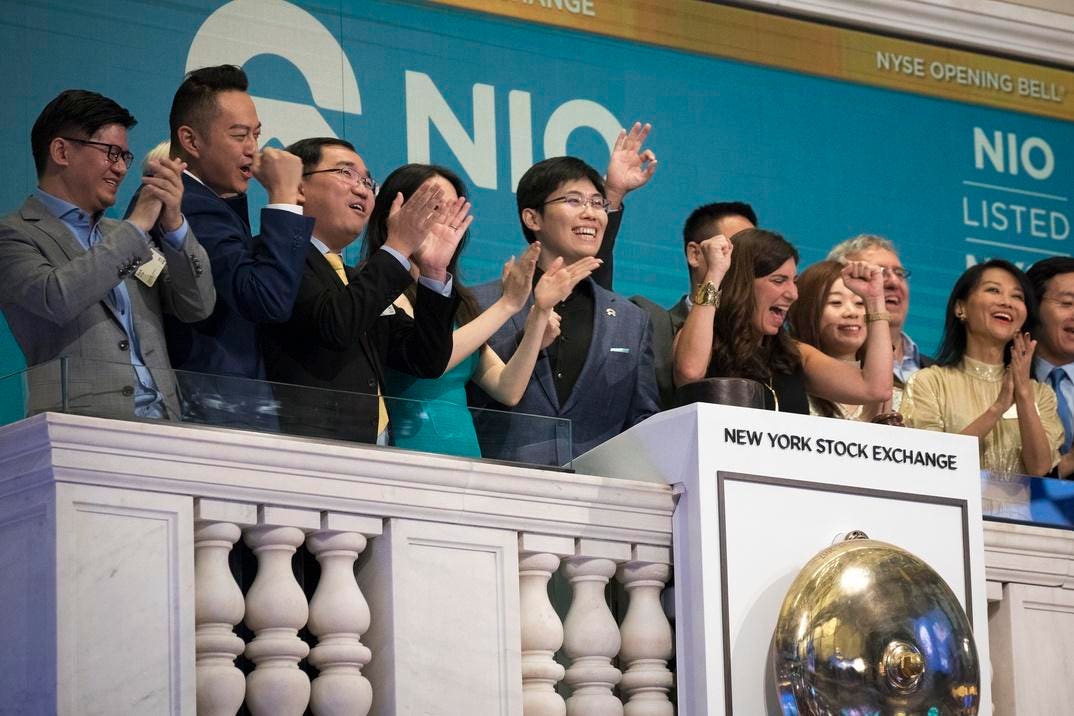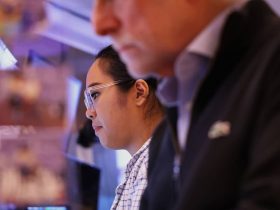For decades, Chinese companies have routinely listed on U.S. exchanges like The New York Stock Exchange and NASDAQ
NDAQ
Now, the listing drought may be coming to an end as China clarified its overseas listing regulations on domestic firms. The first company to receive China Securities Regulatory Commission approval to complete its listing is Cheche Group (NASDAQ:CCG), which saw its share price soar from $10 to $200 on its first day of trading.
Cheche, China’s leading online marketplace for auto insurance, has partnered with many of the leading electric vehicle manufacturers to embed the purchase and renewal of insurance into new vehicles. Its partners include leading car manufacturers Li Auto, Xpeng, and NIO.
While the company’s share price has since drifted back down, the enthusiastic reception it received suggests that when it comes to China tech stocks, investors may be thirsty for new ideas after an extended pause in public listings on U.S. exchanges.
There is plenty of precedent for these types of deals. China’s tech sector churned out shiny new IPOs that listed on the NYSE or NASDAQ and used the infusion of capital to leapfrog their competitors. In e-commerce, solar energy, and EVs, some of these companies have grown into the most prominent players in the world. Their cross-border listings were significant profit centers for Wall Street banks.
When Didi was ordered to delist from the NYSE over concerns about data security, the message was that Didi had not been approved for listing overseas – although no formal approval process existed at that time. Since April 2023, however, the CSRC, China’s version of the Securities and Exchange Commission, has implemented a new approval regime for overseas IPOs.
The process is mandatory for any Chinese company that wishes to list in the United States, Hong Kong, or other overseas markets. As companies and their investment bankers gain a clearer sense of which names are likely to be allowed to venture overseas, the United States may once again be seen as an attractive destination to raise capital.
The review process is off to a slow start, prompting criticism from some of China’s leading venture capitalists. Since mid-August, the CSRC has started approving the companies in its backlog, providing a glimpse into the pipeline of names that investors may see later this year.
In theory, having the blessing of the Chinese government should bolster investor confidence. It provides a seal of approval for the variable interest entity structure used by most China tech IPOs as a workaround to foreign ownership restrictions. Chinese regulators may be better equipped to weed out bad actors who might reflect poorly on the country’s reputation with global investors.
The initial crop of approved names is focused on the EV and mobility sectors. This is not surprising, given that China’s existing U.S.-listed EV companies, such as Li Auto (NASDAQ:LI), Xpeng (NYSE:XPEV), and NIO (NYSE:NIO), are very actively traded, with the first two having notched sizable gains in 2023.
Trio Of Mobility IPOs Cleared To Launch IPOs
Zeekr, a relatively new entrant into China’s EV market owned by auto giant Geely, is seeking to raise $1 billion in a US IPO at a valuation of over $13 billion, according to Reuters. The company has already filed confidentially with the SEC and begun meeting with global institutional investors to gauge demand for its shares.
Zeekr shipped 72,000 vehicles in 2022 and is seeking to double that this year, offering its premium EVs in selected European markets. It is an open question whether investors will welcome another China EV brand just as Europe is considering protecting its domestic manufacturers from an anticipated onslaught of Chinese imports.
WeRide is a futuristic manufacturer of fully autonomous robotaxis, buses, mini-buses, and street sweepers. The company is the brainchild of the former chief scientist at Baidu’s (NASDAQ:BIDU
IDU
UAE
WeRide filed confidentially for a $500 million IPO back in March, according to Bloomberg, and was approved for listing by the CSRC at the end of August. WeRide has a blue-chip list of existing investors, including Carlyle Group
CG
The company has yet to disclose its financial results publicly, so investors will need to wait until then to decide if they want to hop on board.
Innovusion is the third mobility-focused IPO to be cleared for takeoff by the CSRC. It produces long-range light detection and ranging (LiDAR) systems that serve as the essential “vision” that makes autonomous driving possible. Backed by EV-maker NIO, the company’s other backers include Temasek, Hermitage Capital, and NIO Capital. Innovusion’s LiDAR sensors have become the standard for NIO’s vehicles, and it has won additional customers, including Faraday Future and Pony.ai.
However, Innovusion’s competitor, Hesai Group (NASDAQ:HSAI), has seen its share price sag by 45% since its IPO in February 2023, so management must convince investors that its technology can light its path to more robust market performance.
While each of these new IPO hopefuls will stand or fall on its own merits, the fact that China’s government has established a clear regulatory framework for listings is a cause for optimism. After two parched years, the overseas listing drought may finally be over.
Read the full article here













Leave a Reply